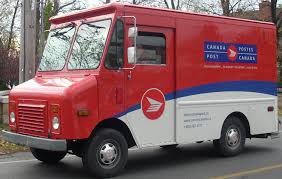By Malcolm Bird
Looking for a new job? Canada Post is looking for a president and chief executive officer. But it's not a position anyone should consider lightly.
The new CEO will face daunting challenges in managing Canada Post's operational, financial and governance deficiencies in this digital age. And it's a job that must be done under close public scrutiny and in a deeply politicized context.
However mundane it might appear, mail delivery is politically significant to the federal government. Mail and parcel service is one of the few tangible things the federal government does that affects the daily lives of the general population.
Any problem with mail delivery makes its way swiftly to our elected members of Parliament. Instances of poor customer service or corporate mistakes generate headlines.
Canada Post is granted -- or cursed, depending on how you look at it -- with a monopoly on mail service. The Universal Service Obligation, mandated by the federal government, means it must serve all addresses, regardless of the cost.
As a result, one of Canada Post's core purposes is to provide mail and package delivery services to rural areas and small towns, places where private firms offer limited service. These services are subsidized from other components of its operations.
Positive revenues from its urban courier and package delivery services, and Purolator Courier, its subsidiary, are used to finance its losses incurred to serve rural Canada.
So what's the problem?
Many private-sector logistics firms, not surprisingly, likely resent a public operator taking market share. Many of these firms are well-organized and politically significant, and often seek to stymie Canada Post's business development plans.
On the operational side, Canada Post also faces major structural challenges. Mail volumes per address are declining between five and eight per cent annually. Its pension plan is in deficit by billions of dollars. And some large online retailers are considering entering the shipping business, cutting out intermediaries.
Then there's the union. Historically, Canada Post has experienced many disputes and its labour relations continue to be difficult.
Further, some in the Ottawa civil service have little appreciation for the value of and challenges faced by Crown corporations. There's likely little empathy for Canada Post's problems at its home, Public Services and Procurement Canada (PSPC), nor from the Treasury Board or Finance Canada.
Older civil servants may recall the great success of privatizing Canadian National Railway and some may wish the same for remaining Crown corporations.
On the governance side, it faces difficulties with its single shareholder. A plan to modernize Canada Post's delivery system has stalled.
Eliminating remaining door-to-door delivery (approximately one-third of homes) and installing block mailboxes was dropped by the Liberal government to curry political favour with voters.
These changes would have reduced costs by approximately $400 million per year and eliminated between 6,000 and 8,000 positions. And it was achievable through attrition given Canada Post's relatively aged workforce.
The costs of maintaining door-to-door service will have to come from somewhere and the federal government will not likely foot the annual bill.
Nor can Canada Post borrow the funds to cover these expenditures. It will have to absorb this expense and find the resources within its current operations.
So what could the new CEO do with this hornets' nest?
The evolution of Australia Post offers some important lessons.
Like Canada Post, Australia Post provides service to a small population spread throughout a large land mass and cross-subsidizes its remote services with revenues from its other business lines.
It has streamlined its operations and earns additional revenues by offering a diverse number of other services -- including financial services.
After years of acrimonious labour relations, Australia Post has even reached a détente with unionized workers. It operates with proportionately fewer employees, meets its capital costs and provides a dividend to the government.
Canada Post's current situation, in many respects, mirrors challenges faced by all Crown corporations. They must balance divergent and often conflicting demands from their single owners, amongst other interests.
And they must meet stringent commercial and, most critically, politically relevant policy goals that are often in conflict. Executives who run these firms dream of the simplicity that the maximizing profit goal provides their private sector counterparts.
Canada Post's new CEO will need sharp political, business and diplomatic skills to steer it toward a sustainable future.
Malcolm G. Bird teaches political science at the University of Winnipeg and is a contributor with EvidenceNetwork.ca, which is based at the University of Winnipeg.
© Troy Media

